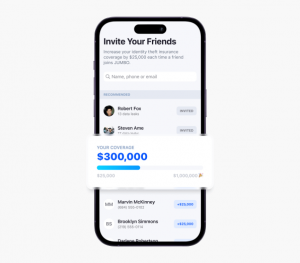Gone are the days of hopeful but helpless fashion lovers seeking partnerships with and recognition from the major labels. These days, contributor Adam Weiss says, advertisers are pulling out all of the stops.
Fashion Week in New York has come and gone, and once again, fashion bloggers took center stage. Recently, there has been growing interest in what drives the relationship between high-end fashion brands and the bloggers that write about them. How do they actually work together and why is this partnership growing increasingly significant?
The best fashion brands recognize the importance of these influencers by understanding the true value they bring. Bloggers at the top of their game contribute millions of dollars in new consumer revenue by simply mixing their personal style and personality with their ability to choose the right partners and host affiliate links for brands they love.
In fact, a recent study shows that 72% of millennials and 51% of Gen Xers follow fashion bloggers; more importantly, 90% of wealthy consumers who follow fashion bloggers make purchases as result of the blogs.
So how do bloggers get started in affiliate marketing, and what separates the top earners from the rest?
1. Choose The Right Network
Affiliate networks provide access to thousands of brands – including leading and emerging brands in a wide range of categories. They also provide the technology and tools to build relationships, create links, track results and pay out the publisher partners in their network. (Disclosure: the author’s company operates an affiliate network.)
Most bloggers just getting started in affiliate require support, training and strategic guidance; thus, it’s important to look for a network with educational programs and an easy-to-use interface with publisher-friendly tools creating a seamless experience to get links to the brands, retailers, or products that they want to link to.
The infrastructure and reliability of that network to support a high volume of clicks and transactions, monitor traffic and provide on-time payments are equally important. Most leading networks work on Cost Per Acquisition (CPA) which means bloggers are paid a percentage of each sale they drive for their brand partner. These percentages vary by partner and network, but can be very lucrative for bloggers driving the right traffic for the right brands.
Bloggers that collaborate directly with advertisers optimize the partnership with custom campaigns, increased commissions, and incentive to generate maximum exposure across all marketing channels, like social media. Therefore, it’s best to work with a network that grants the 1-1 relationship proven to generate the most revenue.
2. Choose The Right Partners
Successful bloggers understand the importance of working with brands that appeal to their audience and have the potential to create long-term, productive partnerships.
This brings up native advertising, which can be defined as advertising within the design of the publisher’s site – in this case, within the content. When a fashion blogger promotes an item or brand they actually wear or admire, takes a photo with the item or writes about how and where to purchase, the content falls into place naturally and reads true to their audience.
This works as the perfect match to drive sales. (Note that the blogger must provide appropriate disclosure to stay on the right side of the FTC.)
Affiliate marketing on content sites is one example of native advertising, but with native ad spend estimated to grow to $4.57 billion by 2017, the advertising ecosystem will be forced to evolve, and there is no doubt that bloggers will be more selective about the advertisers they work with. Commission potential is not the most important element – it’s marrying the product to the content.
3. Diversify Your Reach
Pinterest has recently made headlines with its announcement to remove all affiliate links from the site. This has been devastating to some bloggers, while others have been unaffected. How is that possible? In one word: diversification.
Bloggers shouldn’t rely too heavily on one content channel to drive sales. In fact, the most successful bloggers use a variety of social media and tools to share their images, content and affiliate links. The goal is to find the right media mix to interact with and attract new readers versus trying to build success from a single site.
Some bloggers utilize social media channels, like Twitter, to market site features and products mentioned within content. Because Instagram does not provide its users a solution to tag products featured in posts, third-party services allow bloggers to create “lookbooks” from their Instagram content. Because influencers utilize social media to expand their reach and their own personal brands, affiliate marketing tools are evolving to allow bloggers to monetize not only on their sites, but on social media.
4. Use Your Data To Make Smart Decisions
Just as brick-and-mortar stores rely on inventory management to determine orders and minimize costs, bloggers must rely on their data to determine where they’re selling, what they’re selling and which links convert better than others.
The data available to bloggers can give them a range of information including how to optimize their site to increase conversions, as well as a better look into what drives their visitors to purchase.
Consistent and reliable data and reporting are key to higher commissions and sales. Utilizing the data from an affiliate network allows bloggers to develop content based on what’s engaging their audience.
In Summary
The tides have certainly turned in the blogger’s favor. Gone are the days of hopeful but helpless fashion lovers seeking partnerships with and recognition from the major labels. These days, Advertisers are pulling out all of the stops to get their products in front of the major influencers on social media. Affiliate marketing provides the perfect introduction.
The lucrative partnership of brands and bloggers will only grow stronger. There is unlimited revenue potential for bloggers who make the right decisions and we will continue to see new, innovative ways to shop evolve as a result.
Some opinions expressed in this article may be those of a guest author and not necessarily Marketing Land. Staff authors are listed here.
(Some images used under license from Shutterstock.com.)
Marketing Land – Internet Marketing News, Strategies & Tips
(398)









